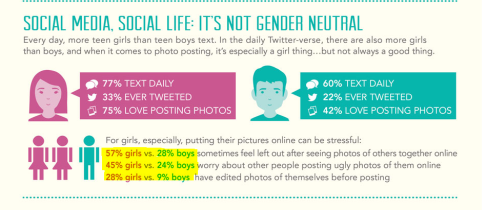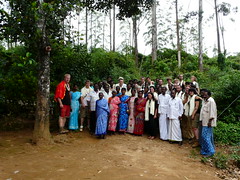Yesterday I went to an internal event about Social Media for staff from a cross section of departments within the local authority organised by marketing and communications and facilitated by Public -i . Within the Youth Service, as many readers of this blog will know, we’ve been looking at how we can use social / digital media for some time to engage and work with young people so I was very interested to see our organisational approach and understand what more we need to do.
I have been mulling over the various discussions and trying to make sense of what I was hearing.
I think I was surprised (although I’m not sure why) by the basics that we were discussing re Social Media. The first part of the session was spent ensuring that people had a level of understanding around Blogs, Social Networking sites, the internet space, forums, etc which I had assumed people would already know. Time was also spent looking at the potential of developing and enlarging the networks available on the net to reach a wider audience and engage others in our debates and service developments. One of the local sites mentioned was Jon Jollys blog as an example of reaching a wide range of people involved in a particular area of work. Another was Adur Voluntary Action. The day progressed with quizzes that supported peoples’ understanding of how wide ranging social networks are and why we should be involved in them as an organisation.
 There followed some interesting discussions about brand / identity and how much you can or can’t control the space. I was particularly interested in Catherine Howe’s take on online and offline identity which she has blogged about here. This has given me food for thought and is quite pertinent to some of the discussions we have had at Youth Work Online where there are various discussions about professional boundaries, identity and working with young people. Whilst I understand what Catherine is saying about some of the issues of identity I feel that her discussions don’t go broad enough and tackle the issues of identity in the context of service delivery and engaging with young people and other vulnerable groups online. In my opinion the need for safety and safeguarding should be as paramount in online spaces as offline. This in itself will require separation between professional and personal identities which I think is something that can be difficult to understand. Consequently any developing training for youth workers should consider and deliver on this subject.
There followed some interesting discussions about brand / identity and how much you can or can’t control the space. I was particularly interested in Catherine Howe’s take on online and offline identity which she has blogged about here. This has given me food for thought and is quite pertinent to some of the discussions we have had at Youth Work Online where there are various discussions about professional boundaries, identity and working with young people. Whilst I understand what Catherine is saying about some of the issues of identity I feel that her discussions don’t go broad enough and tackle the issues of identity in the context of service delivery and engaging with young people and other vulnerable groups online. In my opinion the need for safety and safeguarding should be as paramount in online spaces as offline. This in itself will require separation between professional and personal identities which I think is something that can be difficult to understand. Consequently any developing training for youth workers should consider and deliver on this subject.
Sticking with the theme of identity we looked at branding and what this actually meant in online spaces. At the moment we have (as I am sure so most local authorities) a large number of policies and procedures for publishing and creating press releases and other marketing material. The majority of these are designed to protect the brand, reputation, professionalism and view of our organisation. These policies seem to come adrift in the world of Social Media which by its very nature is about others developing and sharing content with little control over where it goes. A draft policy for servivces developing work using social media sites was then issued for discussion. I was, and still am, surprised that this perpetuated the idea of marketing being about broadcasting and sending out info with little about how to enagage and involve our clients. A corporate approach was also being promoted with little understanding and guidance about using social media for professional development and networking.
At the end of the day I think I gained a better understanding of where we stand corporately with regards to Social Media. The Youth Service has already been tackling some of the issues re identity, co-design, participation and delivering services online. Whilst no means there I think we are clearer about what we need to think about and ways in which we might achieve this. And finally, although we already have links with our Marketing and Communications services I feel that now the time is ripe to work with them even closer in order to really move forward in the modernisation of our services.





 At the moment I’m reflecting on the
At the moment I’m reflecting on the 




